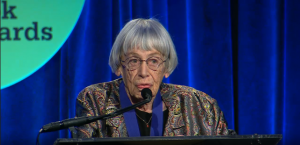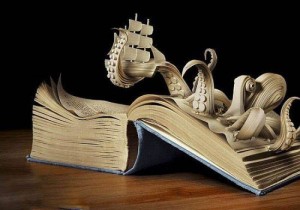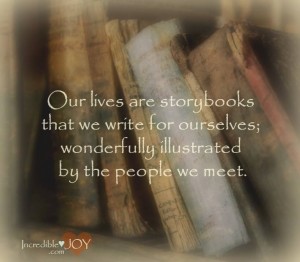Or in less than three minutes your time!
http://www.cnet.com/news/watch-1200-japanese-engineers-switch-an-above-ground-train-track-to-a-subway-line-in-three-hours/?
In Under 4 Minutes, Alan Watts Changes Your Life
I’d really like you to listen to this with all your attention and your mind wired open to the potential truth of these words. Because they match my reality to a T.
Furthermore, if you are up for the challenge, listen to it every day for a week. Each day after you have listened to it, look at your life and ask yourself the question, “Of the parts of my life over which I have choice and control, which do I choose to keep, and which do I choose to lose?” and “What would I like to add?”
Then pick one, just one, that you feel comfortable with adding or subtracting from the sum of your existence.
I’m sure that if you kept this up for not too long you would have vastly improved your life.
Thank you for reading.
https://www.facebook.com/video.php?v=10152505438373908
Enlighten The People
CDC Admits Flu Vaccine Does Not Work – Influenza Outbreak on Fully Vaccinated Navy Ship
Need proof that the seasonal flu vaccine is not effective? Look no further than the CDC’s own publication admitting the fact: Influenza Outbreak in a Vaccinated Population.
Earlier this year (2014) the CDC published a report documenting an influenza outbreak which occurred among fully vaccinated navy personnel aboard the USS Ardent, a U.S. Navy minesweeper moored in San Diego, California while conducting training.
What does this say about the rationale of mandatory flu vaccines for school children, or mandatory flu vaccines for healthcare workers in healthcare facilities?
http://healthimpactnews.com/2014/cdc-admits-flu-vaccine-does-not-work-influenza-outbreak-on-fully-vaccinated-navy-ship/
“We will need writers who can remember freedom”: Ursula K Le Guin at the national book awards.

Ursula K. Le Guin was honoured at the National Book Awards tonight and gave a fantastic speech about the dangers to literature and how they can be stopped.
http://parkerhiggins.net/2014/11/will-need-writers-can-remember-freedom-ursula-k-le-guin-national-book-awards/
Powered by Salt Water: 920 hp, 373 Miles/Tank
Our Lives Are Story Books
FDA Says Is Safe
Become Strong
The Demise of the Book

Couldn’t have said it better myself!
THE DEMISE AND FALL OF THE BOOK…
A recent conversation with some very good friends of mine has confirmed something that I – and many others – have been aware of for a very considerable time. The UK, along with many other countries, is no longer reading. Of course there are those who read. I am not saying that no-one is reading, but those who are really reading are not in their teens, twenties and thirties. Reading is still a leisure-time mainstay for an older generation, and we are busily graduating one generation after another that does not see reading books as necessary or desirable.
It is now estimated that 60% of the UK’s adult population are functionally semi-literate. I see this endlessly, and have even considered setting up a website for people to post their own ‘funny’ photos. There is a newsagent near my house where a huge professionally-printed vinyl sticker announces that ‘ciggerettes’ can be purchased; another road sign, presumably deployed by the council, states that during work, ‘bussinessess’ will be open as usual. The incorrect use of apostrophes is rampant, the absence of colons and semi-colons, glaring grammatical errors in signs in Tesco, Waitrose and Sainsburys, just reminds me on a daily basis that we are forgetting how to use our own language.
We can blame technology, texting, slang, and all else, but that is not the cause.
As for the catastrophic decline in booksales, we can target television, Amazon, the web, video games, e-readers and a host of other things, but they are not the real cause.
The cause of this decline is that we are no longer teaching people to read. It is that simple.
In an effort to ‘increase standards’, education has been dumbed down. They did it in America under Bush (‘No child left behind’), and a process that had already begun thirty years ago has merely escalated in the UK.
Some while ago I was asked to give a lesson to three classes of 16-18 year-olds at a local university college. A hundred and five students in all, every one of them pursuing A Levels in English Language and Literature with a view to becoming a teacher in those same subjects. Not one of them had heard of either Hemingway, Steinbeck or Capote. A few of them had heard of Tolkien, but thought that he wrote the screenplay for the films. They were unaware of the fact that ‘Lord of the Rings’ was based on a series of novels. All told, only nineteen of those one hundred and five students had read an entire novel in their lives. Their literature module requirement for A Level was to study chapter one of both ‘The Color Purple’ by Alice Walker and ‘Tess of the d’Urbervilles’ by Thomas Hardy. Just chapter one, nothing else. The question at exam time, of which they were forewarned, was simply ‘In your own words, describe how this novel begins’.
Many years ago we had something in the UK called the Net Book Agreement. This simply stated that no matter where you bought a book it would cost the same. Several key individuals within the publishing industry believed that if they got this law cancelled then – by giving greater discounts to supermarkets and book chains – they would sell more books. So these key individuals lobbied the government and got the Net Book Agreement cancelled. It worked. They sold a lot more books. Then came the internet. Then came Amazon. Amazon had the power to order such vast quantities of books that they could demand ever greater discounts; those discounts were granted, and slowly but surely the entire framework and fraternity of independent bookshops was driven out of business. There was no way that a small bookshop, able to order merely half a dozen copies of a book from a distributor, could match the discounts offered on-line. And we as punters, what choice did we have? A book from a local store cost us £8.99, whereas on-line we could get it for £3.50. There was no contest.
In France they had the same law. They still have it. They call it the Prix Fixé (Fixed Price). It means that no matter where you buy the book, whether that be local bookshop or major on-line retailer, it costs the same. It is the law. No-one can undercut anyone else. They don’t publish hardbacks in France; they publish something called ‘grand format’. This is a soft-backed book that is the same size as a UK hardback. On average, it costs around €22 (currently approx. £17.50). Six months or so later, another company will release a paperback version of the same book. This averages around €8 (£6.35). Irrespective of where you buy your books, that’s what you pay. France has a thriving independent bookstore community. An individual who owns and runs a bookstore can make a very good living. There are tiny discounts available if some books are bought in larger quantities from distributors (5% or thereabouts), so independent bookstores in a particular region band together and make orders as a group.
But, even more important than the cost of books and the healthy independent bookstore community, there is the attitude about books. This is an attitude we have almost completely lost in the UK, and that attitude is all about the importance of books.
Why do we read fiction? What possible benefit can be derived from reading a work of fiction?
I don’t know about you, but my vocabulary, my ability to communicate both verbally and in writing, my ability to spell, to punctuate, to study, to remember, to use my mind, to have a viewpoint and an opinion, my ability to learn, to debate, to reason, to rationalize and to understand life has come from books. I do not believe I have ever read a work of fiction that has not contributed in some small way to who I have become. It has been said that readers are more tolerant, compassionate, understanding, patient, perceptive, focused, intelligent and driven than those who do not read. I cannot comment on that. What I can say is that without books my life would not be what it is now, and I am not talking about the books I have written, but the books I have read.
If you are a reader, then I am preaching to the converted. If you are not a reader, then you won’t be reading this anyway, but you have absolutely no idea what you are missing.
I am obliged to end here as I have exceeded a thousand words, and I am aware of how short our attention spans have become.
All I can conclude is that if we lose the book, then we lose our culture.
Read, keep on reading, and convince others to read. It does not matter how you read, whether it be hard-copy, e-reader, or from the original handwritten manuscript; the important thing is that you read. E-books are not taking up the slack as far as booksales are concerned. Not even close. Why? Because changing the format in which we read does not make non-readers into readers. Only readers can convert non-readers into readers. Teachers, parents, grandparents, friends, neighbours, work colleagues, it doesn’t matter. If you are a reader and you know someone who isn’t, find out what they are interested in and give them a book. Let’s be responsible for creating an entirely new generation of readers. They will then pass on that love of reading to their own kids, their friends, just someone else, and maybe we will see our culture come alive again.
The book is in your hands, and so is the literary and cultural future of our civilization.
In fact, I would go so far as to say that the future of our civilization as a whole lies almost exclusively in whether or not we read, for is it even possible to have a civilisation founded on a bedrock of illiteracy and ignorance? I don’t believe it is.
https://www.facebook.com/rjellory/photos/a.401590409929834.98590.391732764248932/723403234415215/?type=1&theater






